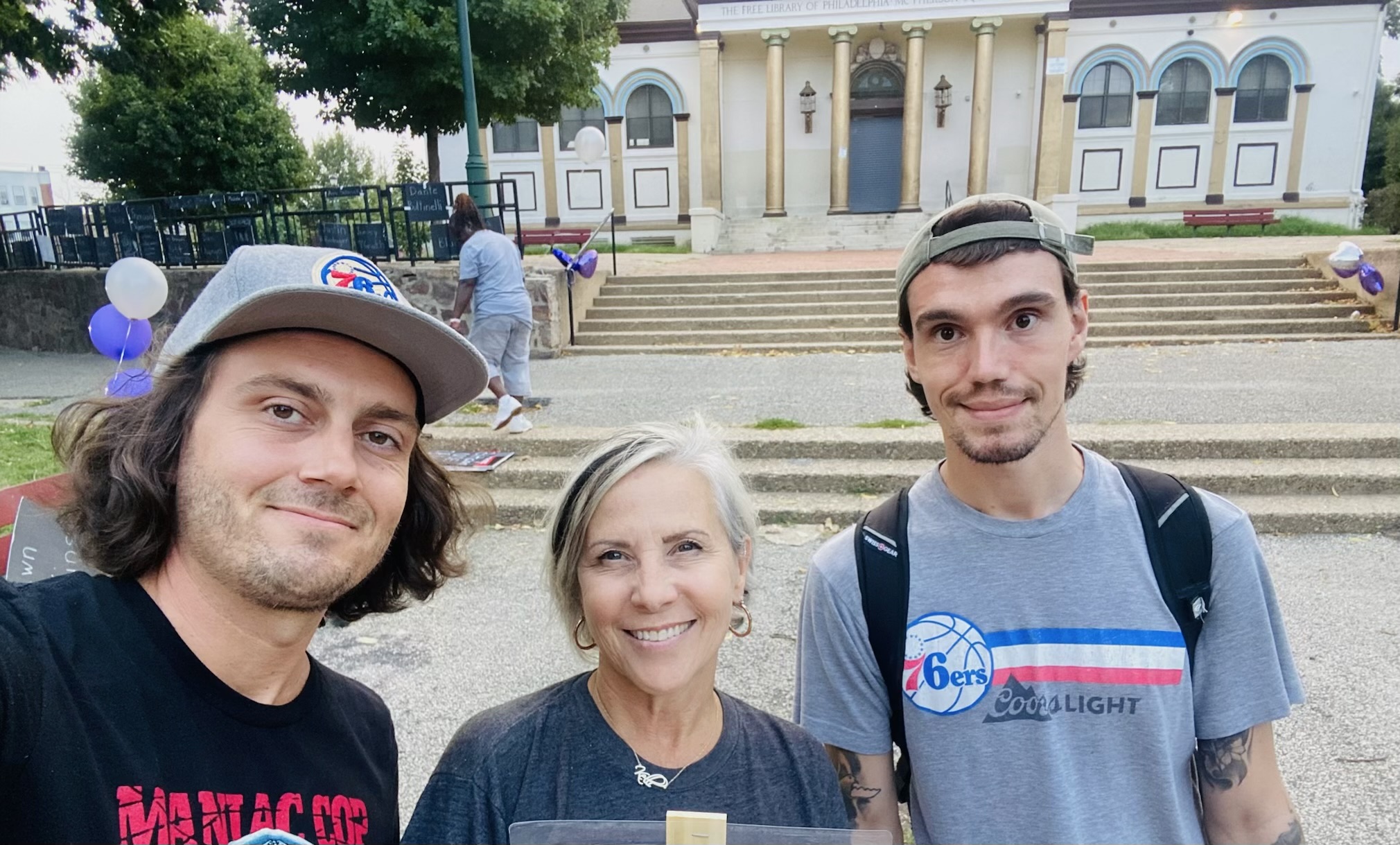
Photo credit: Jeff Fusco/The Conversation US, CC BY-ND
By: Theo Fountain
I saw the beach today, it looked lovely. Sunlight crinkled atop the waves, shimmering like crushed glass. It’s the only feature distinguishing water from sky as they appeared near identical, effortlessly in blue. Beside the shoreline, posed on the dark sand, a smiling woman held a child.
That woman pictured is here now, sharing photos of her daughter’s first beach trip. She’s my doctor and our appointment has just begun. To anyone passing by, the sight of us would seem rather unremarkable, just two people in another of life’s benign conversations.
But it’s significant to me.
Years ago, I wandered through an American hell, a place where many of our country’s crises intersect. Where at night an unhoused woman’s anguished cries are answered by snickers and jeers. A crowd of teenagers surround her, slapping her hands, laughing at her shrieks. Her tormentors seem powerful at this moment, but they themselves are merely orphaned children—not by their parents’ death, but by drugs, prison, and poverty.

In the daylight, tourists film the tranq wounds of a person with substance use disorder, posting it online for millions to see. A mother discreetly cops crack off her son’s friend. Paramedics pump on a man's chest as neighbors leave for work.
This is where my doctor, pregnant with her first child, met clients—in a bus parked on Kensington Avenue. She was working for Prevention Point Philadelphia’s (PPP) mobile clinic, prescribing medication that treats addiction to opioids. Here I began to rebuild my life.
Prevention Point mobile staff drove me to pharmacies, brought me clothes, and fed me.
There are a number of invisible obstacles that keep unhoused people from treatment. Addiction is often mischaracterized as an unwillingness to change. Instead of a person struggling with sickness, we see someone selfish, who chose highs over their homes and loved ones. This dim view of our unhoused and addicted neighbors—that their suffering is self-inflicted, and thus relieves society of responsibility—is outdated and cruel. When you pass someone shrouded in dirty blankets, sleeping outside in the snow, you know that’s not the choice of a person with other options.
Mental illness is an example of the invisible challenges unhoused people face. Untreated disorders like anxiety or depression prevent many from checking in to treatment. Simply leaving your neighborhood can be a daunting task. I’ve had plenty of times on and off the street where I was immobilized by depression. There are financial impediments as well, like not having a phone to make appointments or money to pay for transportation.
I got my medication in jail because of them. I was cured of hepatitis C by medication prescribed by the same doctor who had helped me on the bus.
Mobile services solve some of these challenges. For me, I know I’d have never started Suboxone, a medication I still rely on, had it not been offered on that Prevention Point bus. I got to see a doctor once every two weeks because they were close. I needed those people. The staff advocated for me countless times. When my arm was swollen with cellulitis, it was that doctor who got me to an emergency room. It was the MOUD staff who checked up on me in the hospital, making sure I received the right medication. My family was able to reach me through the staff on that bus. Prevention Point mobile staff drove me to pharmacies, brought me clothes, and fed me. When I asked to be taken to inpatient, a staff member came with me. I remember how long she spent on the phone, trying to find a place. She brought books, snacks, even got my brother to come to the crisis center with us. When I left a few hours later, she was frustrated, but didn’t give up.
They helped with my insurance, my food stamps, and even came to my court dates.
I got my medication in jail because of them. I was cured of hepatitis C by medication prescribed by the same doctor who had helped me on the bus. I look back at all they’ve done for me and am so grateful for that bus parked at Kensington and Allegheny.
Looking at family pictures today with my doctor is a dream. I don’t know if words can capture the enormous gratitude I feel towards her and her staff, the people who saved my life and helped me build a healthier future.